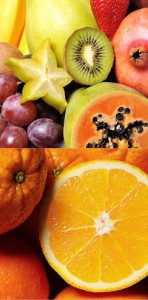I could not believe what a strange feeling it was being surrounded by all the aisles of boxes and cans of totally processed foods. I almost could feel all the chemicals and toxins lurking on the shelves, but I just walked on, amazed at how dramatically my eating habits have changed in the last year.
Those reflections crossed my mind as I was picking up a few non-food items at the local supermarket where I used to shop regularly before switching to what I call an “organic flexitarian diet.” Now I shop at a whole foods market, but just a year ago I was still buying too many cans with long ingredient lists of manufactured ingredients and preservatives. Somewhere in the earlier part of the year, my eating lifestyle was going to undergo a metamorphosis and though it had already begun some time before, the true organic butterfly in me emerged earlier this year.
The catalyst for this was a healthy lifestyle conference, sponsored by the Reiki organization to which I belong, which featured a local doctor/nutritionist who promotes a raw, organic whole-food lifestyle for better health and longevity. Everything he spoke about made perfect sense and I was hooked on this concept. The one highly memorable comment he made was in response to a woman from the audience who asked if commercially boxed breakfast cereal is okay to eat. The nutritionist replied, “You might as well throw out the cereal and just eat the box.” I took it to mean that most cereals were not quite as nutritious as the ads on TV would have us believe!
The term “Flexitarian” was coined in recent years to denote a mostly — but not completely — vegetarian lifestyle. A flexitarian diet occasionally includes a meal of fish, fowl or meat. “Occasionally” can mean different things to different people. If one has been eating meat 5 times a week, then perhaps two times per week would be occasional. And for me personally, I prefer organic food and thus the term organic flexitarian best describes my own way of eating.
Here is a brief summary of just a few interesting things I learned and incorporated into my own eating lifestyle in the past year:
- Processed Foods – Reduce or completely eliminate these from your diet. A processed food is something that is not available in nature, something that could not be grown in a garden. Processed foods contain preservatives and chemicals.
- Organic is Better – Non-organic foods have pesticides, herbicides, additives and hormones. These are chemicals that can adversely affect the liver and kidneys.
- Raw Foods are Healthiest — vegetables, fruits, nuts, seeds and sprouts. Our bodies actually recognize these as real foods!
- Chew Your Food Well – What mother used to tell you was right on target! We have teeth for a biological reason — to completely pulverize our food into a cream-like substance so it is easily digested by our system. With thorough chewing (and the biochemical action of saliva) our food is more thoroughly prepared to be digested by the stomach, and the healthy nutrients are absorbed and prepared to be used. This is healthier for our bodies — and also does help reduce gas!
- Animal Protein – Limit this to three meals a week, not on two consecutive days, so your digestive tract can clear itself.
- Three Meals a Day (no more than this and snacking must be greatly reduced — or stopped completely if you have the willpower!) Eating more than three meals and snacking often can cause food to lay in your digestive tract, fermenting. Letting your digestive tract completely clear means it is going through a detoxification process. It can’t do this if you are constantly snacking. Scientifically, it is shown that fermentation can lead to inflammation at the cellular level which can start the disease process within one’s body.
- Acid vs. Alkaline – Your body has a natural, healthy alkaline state that it tries to maintain. Too many processed and cooked foods can create a more unnatural, less-healthy acidic condition. It’s beneficial to reduce the amount of acidic foods consumed. Another tip is: if you are eating acidic foods, consume alkaline first, such as salads and juices, which act to neutralize the acid food that will be consumed next.
- Food sequencing – It is better to eat quickly-digested foods first and slowly-digested foods next. Salads are better eaten before the protein part of the meal, especially if you are consuming meat for that meal. The theory behind this order of eating is if easily-digested foods are blocked by foods that take much longer to digest, then the easily-digested foods will sit in the digestive tract and start that process of fermentation.
If you are contemplating a healthier way of eating, I wholeheartedly suggest trying some of these ideas, but most importantly, add lots of fresh fruits and veggies to your diet!


